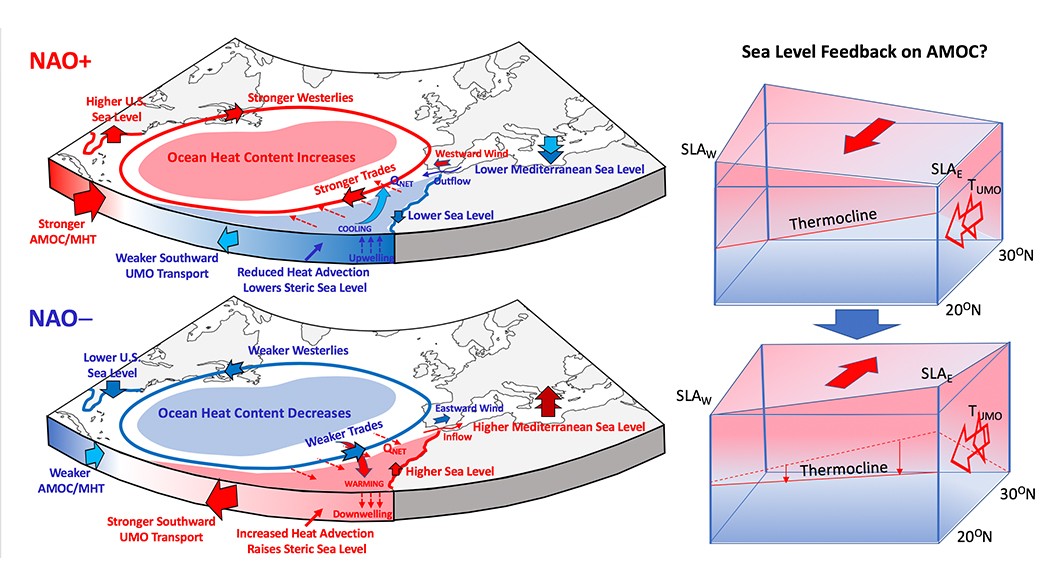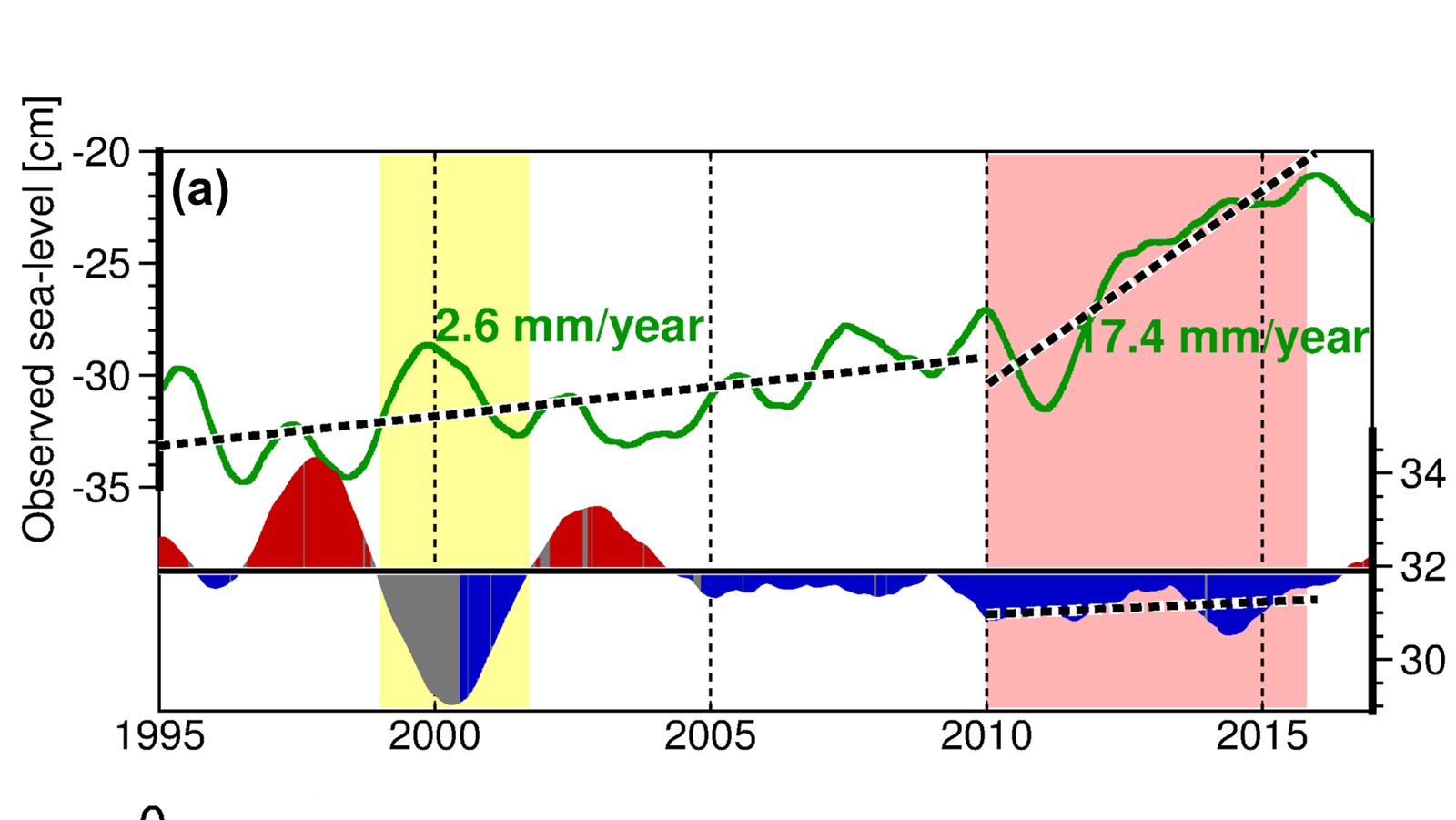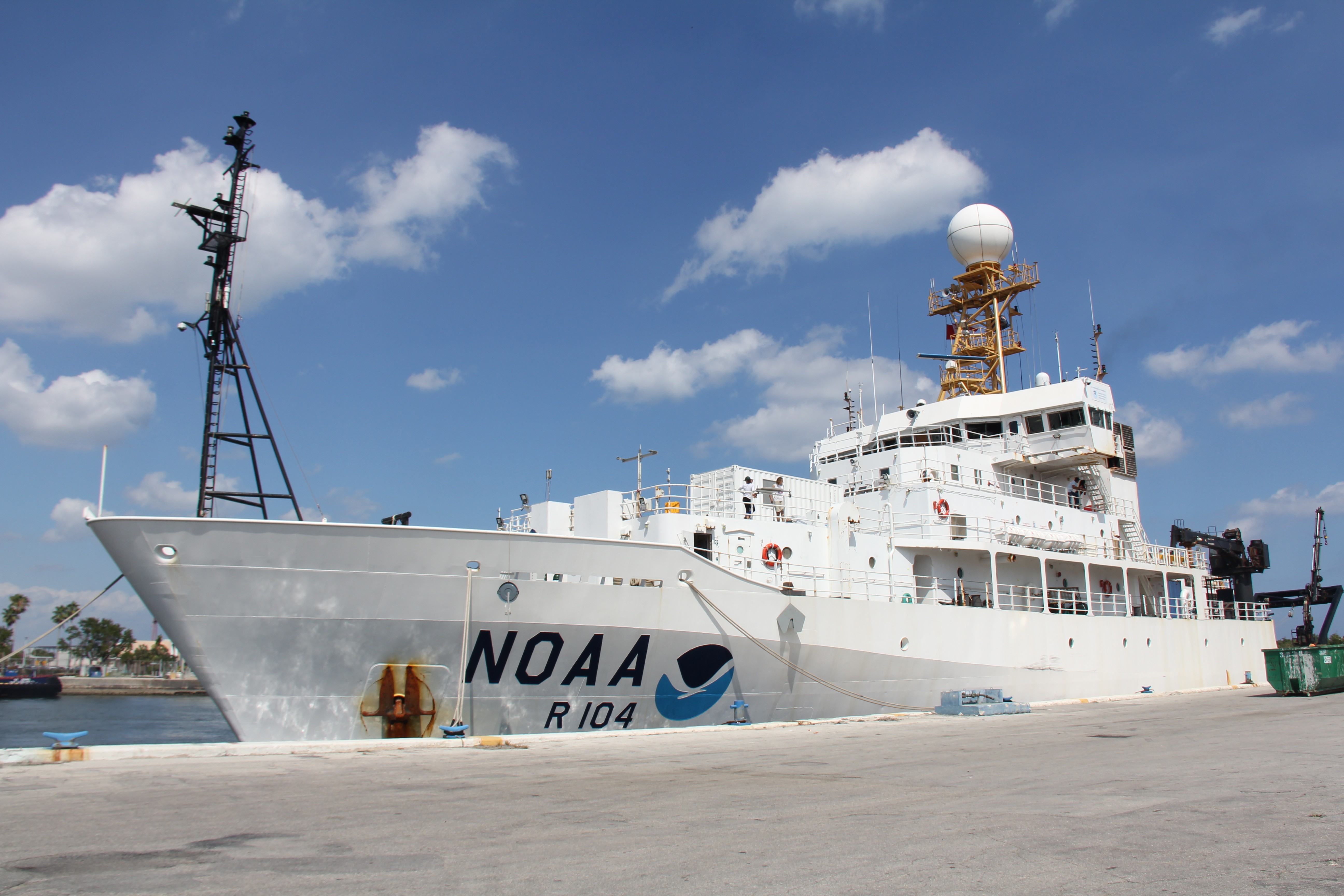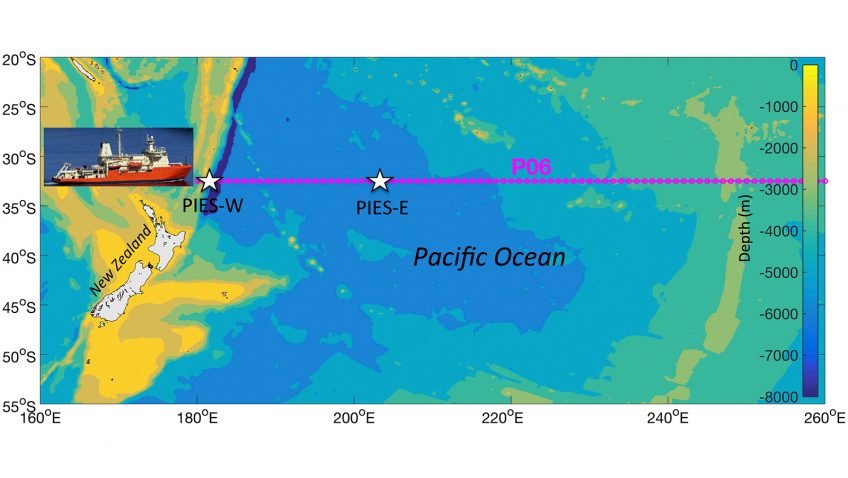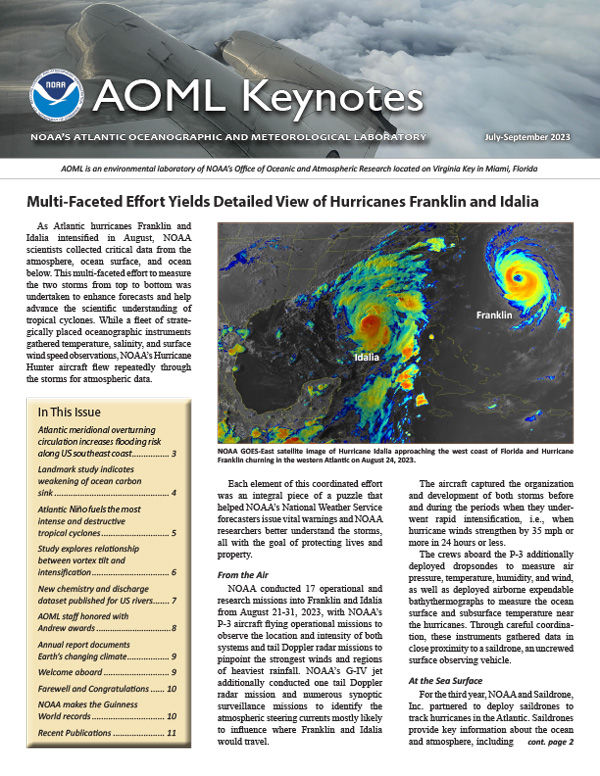New Study Shows Atlantic Meridional Overturning Circulation and Mediterranean Sea Level are Connected
The global mean sea level rise caused by ocean warming and glacier melting over landforms such as Greenland is one of the most alarming aspects of a shifting global climate. However, the dynamics of the ocean and atmosphere further influence sea level changes region by region and over time. For example, along the U.S. East Coast, a pronounced acceleration of sea level rise in 2010-2015 was observed south of Cape Hatteras, while a deceleration occurred up North. These patterns provide background conditions, on top of which shorter-period (and often stronger) weather-driven sea level fluctuations compound what coastal communities directly experience day by day. Therefore, to develop or improve regional sea level predictions, it’s important to identify these patterns and explore how they change over time.
